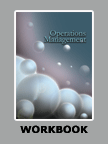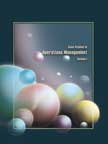Mango: Outsourcing of Non-core Activities to Keep up with Fashion
|
|
ICMR HOME | Case Studies Collection
Case Details:
Case Code : OPER106
Case Length : 20 Pages
Period : 1984-2012
Organization : Mango MNG Holding SL.
Pub Date : 2013
Teaching Note :Not Available
Countries : Spain, Global
Industry : Retail
To download Mango: Outsourcing of Non-core Activities to Keep up with Fashion case study
(Case Code: OPER106) click on the button below , and select the case from the list of available cases:

Price:
For delivery in electronic format: Rs. 500;
For delivery through courier (within India): Rs. 500 +Shipping & Handling Charges extra
OR

Buy Now
|
» Operations Case Studies
» Operations Short Case Studies
» View Detailed Pricing Info
» How To Order This Case
» Business Case Studies
» Case Studies by Area
» Case Studies by Industry
» Case Studies by Company
Please note:
This case study was compiled from published sources, and is intended to be used as a basis for class discussion. It is not intended to illustrate either effective or ineffective handling of a management situation. Nor is it a primary information source.
Chat with us

Please leave your feedback

|
|




<< Previous
Background Note
|
Mango was founded by two brothers, Isak Andic (Isak) and Nahman Andic (Nahman). The two were born in Istanbul, Turkey, and later moved to Barcelona, Spain. During his college days, Isak returned from vacations with T-shirts he had bought in Asian countries and sold them to his friends. He made a good profit. This encouraged him to set up a small stand in Barcelona in 1973 to sell garments imported from Asia. In 1983, the brothers started their own company, Punto FA SL
4, and started commercializing the products under the brand name Mango. On why the name 'Mango', Isak said, "I bought the license rights of two brand marks. One was Scooter and the other was Bubble. These were rejected. I discovered Mango when I was on vacation in the Philippines. I bought a license for the name of this fruit that I liked a lot.
|

|
People did not know about Mango in Spain in those days, they did not have it. Another thing about Mango is, its pronunciation is the same in all languages."5
The first Mango store opened in 1984 in Passeig de Grącia boulevard, Barcelona. The brothers aimed at providing high quality, fashionable clothes and accessories to urban women aged between 16 and 40, at affordable prices. Mango developed its business on the premise that young women looked for good designs, strong brands, and affordable prices. In the first year, five outlets were opened across the city. Mango then started expanding in Spain and opened a store in Valencia.
The company ventured outside the country in 1992, setting up a store in Portugal through a franchisee. The 100th store in Spain was opened in 1993. This was followed by Mango's entry into France, again through a franchisee. This was quickly followed by franchises being set up in several countries across the world.6
Encouraged by the response to the franchise outlets, Mango started to open its own outlets in 1996. In 1997, for the first time, the turnover from other countries exceeded the turnover from Spain. By 1998, Mango became the second largest exporter of textiles in Spain. It entered Latin American countries through franchises and wholly-owned stores. In 1999, Mango opened 42 wholly-owned stores in several markets. By 1999, it had 486 outlets across the world...
Excerpts
- Next Page>>
|
|









